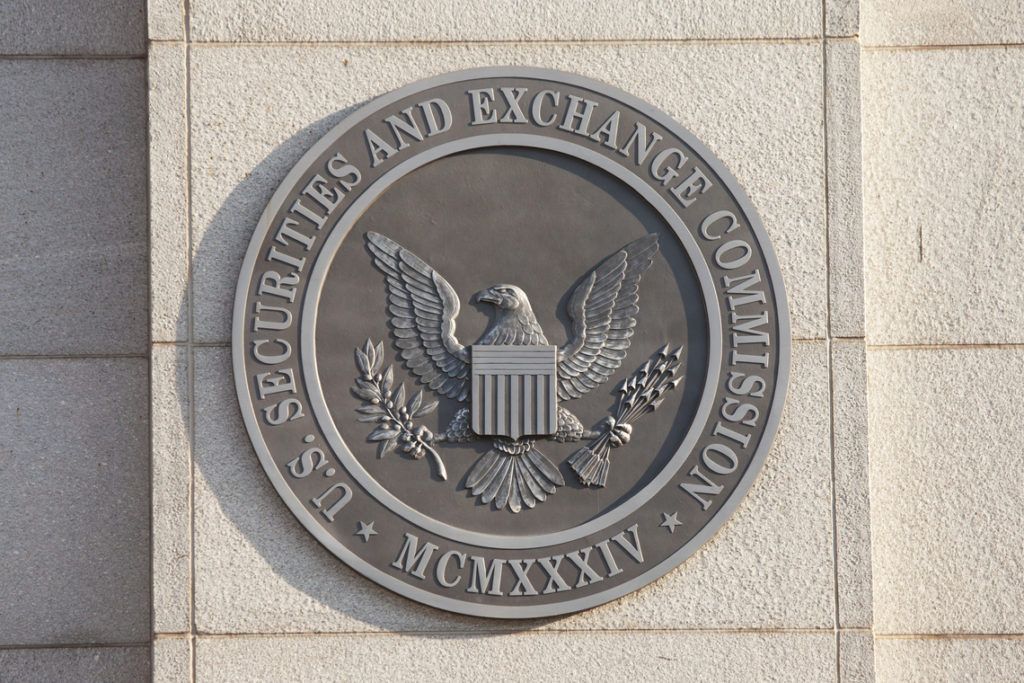One of the most highly debated cryptocurrency issues of the year has revolved around a bitcoin ETF — both their potential and the U.S. Securities and Exchange Commission’s (SEC) repeated denial of bitcoin ETF proposals.
The proposal currently on the table, while the most hotly argued, is also the one most likely to obtain approval from the SEC. It has been submitted by money management firm VanEck in collaboration with crypto start-up SolidX.
Many have expressed hope that the approval of a cryptocurrency ETF would be the ‘magic pill’ to turn around the current bear market. These cryptophiles believe that an ETF would open the doors to greater institutional investment, thereby driving prices forward. To that end, every statement by the SEC is poured over with care.
However, according to some experts, including securities lawyer and digital currency expert Jake Chervinsky, a denial is likely. Yesterday on Twitter, Chervinsky, in a 20-tweet string, brilliantly interpreted the SEC delays and provided an opinion on the pending SEC decision in February 2019.
20/ My prediction is based largely on the manipulation issue. I think the chance of ETF approval will go up over time as market structure continues to develop & more surveillance-sharing agreements are entered.
— Jake Chervinsky (@jchervinsky) December 10, 2018
The question is: how high can it go before the February 27 deadline?
History of the SEC and cryptocurrency
Nobody ever accused the SEC of having an easy job. Created after and as a direct result of one of the most difficult financial periods in U.S. history, The Great Depression, the basic premise of the SEC has always kind of been to prevent anything of that nature from happening to U.S. consumers ever again. One could, however, argue that the SEC’s workload absolutely skyrocketed the minute cryptocurrency came onto the scene. Right now, the biggest decision on the SEC’s plate is the long-disputed VanEck/SolidX ETF Decision. However, cryptocurrency has been on their radar for quite a while. The first major decision handed down by the SEC regarding cryptocurrency and ICOs occurred in July 2017, when it announced a ruling that certain coins were in fact securities, and as such, subject to federal investment laws and regulations. This ruling came about following an investigation into a now-infamous cryptocurrency ICO known as “The DAO.” The DAO experienced a massive hack. While most of the coins were eventually recovered, the damage was done in that ICOs had captured the attention of the SEC. After the DAO ruling, the SEC denied a total of nine different ETF proposals from various cryptocurrency exchanges. Those denied included CBOE, Direxion, GraniteShare, and ProShares. In all nine rulings, the SEC expressed concerned that the exchanges had failed to meet requirements from Exchange Act Section 6(b)(5), which centers around preventing fraud and price manipulation. In yet another encounter with cryptocurrency, the SEC filed an enforcement action against two separate agencies, Crypto Asset Management (CAM) and TokenLot, in September 2018, remitting fines in the hundreds of thousands of dollars. CAM and TokenLot were each found to have violated multiple securities laws, and fines and orders to cease were commiserate with their actions. In this latest ETF proposal, cryptocurrency exchanges VanEck and SolidX have partnered with exchange holding company CBOE in yet another request for cryptocurrency ETF status. The proposal terms state that VanEck, in collaboration with SolidX, would create a physically backed bitcoin trust. The ETF would be marketed by VanEck, with SolidX sponsorship. The ETF would be listed on the CBOE BZX Equities Exchange. The proposal was first submitted in June 2018. The SEC first announced a delay in their decision on August 7, 2018, citing the need for further review. Another delay was announced the following month, in September. Finally, on December 6, 2018, the SEC declared that it would be delaying its decision one final time. The final deadline to accept or reject the ETF proposal is now February 27, 2018.
Current ETF proposal still facing challenges
At the heart of the VanEck/SolidX BTC ETF proposal is a lot of hard work and dedication. However, while the proposal is based around Bitcoin itself, rather than futures markets like the nine previously rejected proposals were, the SEC’s three delays indicate significant concern on its end. The latest delay was accompanied by 18 complex questions regarding the potential ETF. The most significant SEC query revolved around concerns over price manipulation and fraud, issues addressed in the Exchange Act Section 6(b)(5), one of the SEC’s governing laws. This section of the Exchange Act was also cited as the reason for the nine previous denials, including a highly publicized proposal by crypto-giants, the Winklevoss twins. This denial was handed down from the Commissioners, a significant statement coming from the leaders of one of the most powerful financial regulatory agencies in existence. Part of the SEC’s concern is more than valid. Market manipulation, fraud, hacking, and other forms of illegal activity are a tremendous risk within the crypto community. Additionally, it is a brand new form of currency. As such, there is no case or usage history to search and examine in the quest for best practice. However, another looming issue for the SEC is that it does not actually govern cryptocurrency exchanges. The Commodity Futures Trading Commission (CFTC) has jurisdiction over that aspect of crypto. This means the SEC is quite crippled in scope. Therefore, the SEC’s requirements for a surveillance-sharing agreement within an ETF proposal is, in fact, an excellent way to circumvent its limited-to-non-existent jurisdiction over cryptocurrency exchanges. The only other opening the SEC has left available for ETFs is to prove that bitcoin markets are inherently resistant to fraud and manipulation. Not only is this statement highly suspect, but the SEC also denied a Winklevoss appeal based on this argument earlier in the year. This indicates that they would need much stronger proof of security within an exchange than they have previously encountered. While both CBOE and SolidX have submitted strong statements regarding their existing surveillance-sharing agreements as well as their position on the current strength and maturity of the bitcoin markets, it may not be enough to satisfy the SEC. Even CBOE’s comments on OTC trading and its current principal-to-principal trading practice, where parties are identifiable and activity is securely based on trading size and oversight, may not sway the SEC. There is always the possibility that the SEC, whose members are only human, simply fear change. The lack of decision until now may just indicate that it needs time to adjust to the new reality of cryptocurrency, which, despite the highest hopes of some traditional financial experts, is simply not going away. If that is the case, the current series of delays enacted by the SEC for this decision is a positive sign. The agency is becoming more amicable to the idea of an ETF, and its openness could potentially result in an approval for the VanEck/SolidX BTC ETF proposal. Chervinsky begs to differ, offering instead a prediction of 10 percent likelihood that the SEC will approve this proposal in February. [bctt tweet=”However, even if Chervinsky is correct, like Jim Carrey in Dumb and Dumber, a 10 percent chance is still a chance.” username=”beincrypto”] As anyone familiar with the volatile cryptocurrency market is aware, in this space, tremendous change can occur in very short time periods. Therefore, in the case of the SEC’s VanEck/SolidX decision, only time will tell, and a potential decision based on today’s market may be entirely different than a decision based on the market over two months from now. Think Chervinsky is right and the ETF is doomed to failure? Or will the SEC have a change of heart and give approval? Let us know in the comments below!Disclaimer
In adherence to the Trust Project guidelines, BeInCrypto is committed to unbiased, transparent reporting. This news article aims to provide accurate, timely information. However, readers are advised to verify facts independently and consult with a professional before making any decisions based on this content. Please note that our Terms and Conditions, Privacy Policy, and Disclaimers have been updated.

Jon Buck
With a background in science and writing, Jon's cryptophile days started in 2011 when he first heard about Bitcoin. Since then he's been learning, investing, and writing about cryptocurrencies and blockchain technology for some of the biggest publications and ICOs in the industry. After a brief stint in India, he and his family live in southern CA.
With a background in science and writing, Jon's cryptophile days started in 2011 when he first heard about Bitcoin. Since then he's been learning, investing, and writing about cryptocurrencies and blockchain technology for some of the biggest publications and ICOs in the industry. After a brief stint in India, he and his family live in southern CA.
READ FULL BIO
Sponsored
Sponsored

